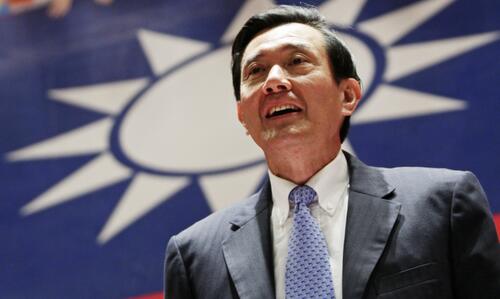Scholars Discuss Growing Evidence of China’s Interference in American Government and Society
While Americans may be well acquainted with China’s quest for influence through the projection of power in the diplomatic, economic, and military spheres, they are less aware of the various ways in which Beijing has more recently been exerting cultural and informational influence. According to a new report, some of these ways challenge and even undermine our democratic processes, norms, and institutions.
With a growing realization that the ambition of Chinese influence operations requires far greater scrutiny than it has been getting, a group of American scholars and policy practitioners set out to document the extent of China’s influence-seeking activities in American society. The working group, co-chaired by Larry Diamond, senior fellow at the Freeman Spogli Institute for International Studies and at the Hoover Institution, and Orville Schell, Arthur Ross director of the Asia Society’s Center on U.S.-China Relations, just released its findings and recommendations in a report that has drawn much attention, “Chinese Influence and American Interests: Promoting Constructive Vigilance.” On December 4, Diamond and Schell discussed the report’s findings and implications at a special roundtable organized by Shorenstein APARC’s U.S.-Asia Security Initiative (USASI).
Diamond and Schell described the report’s detailing of a range of assertive and opaque “sharp power” activities that China has stepped up within the United States in multiple sectors, including Congress, state and local government, universities, think tanks, media, corporations, technology and research, and the Chinese American community. These activities, they argue, penetrate deeply the social and political fabric of our democratic society and exploit its openness. Unlike legitimate “soft power” efforts within the realm of normal public diplomacy, they constitute improper interference that demands greater awareness and a calibrated response.
“The report was born out of a recognition that things have changed,” said Schell. “Our engagement with China has either failed or is teetering on the brink of failure. The report aims to put the question of our interaction and exchange with China within the context of policy.”
Diamond noted that “The question at least has to be asked whether there is a threat to U.S. national interests.” He emphasized that the members of the working group that produced the report seek a productive relationship between China and the United States. The report therefore advocates for perspective and framework that are built on three principles regarding U.S.-China relations: transparency, institutional integrity, and reciprocity.
Diamond and Schell were joined at the panel by Hwang Ji-Jen, a Taiwanese scholar in the Institute for East Asian Studies at the University of California - Berkeley, who helped situate the forms and effects of Chinese “sharp power” in the United States in comparison to its practice in and toward Taiwan. Karl Eikenberry, director of USASI, chaired the discussion.
The event was co-sponsored by the US-Asia Security Initiative in the Asia-Pacific Research Center, and FSI’s Center on Democracy, Development, and the Rule of Law.
Audio from the event is available for download or streaming:







